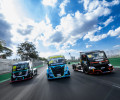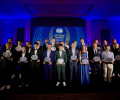Sustainable energy at the heart of latest updates approved by the FIA World Motor Sport Council
- FIA introduces new e-karting categories
- Consolidated energy regulations approved
- Restructure of FIA EHRC reflects rising popularity of historic rallying
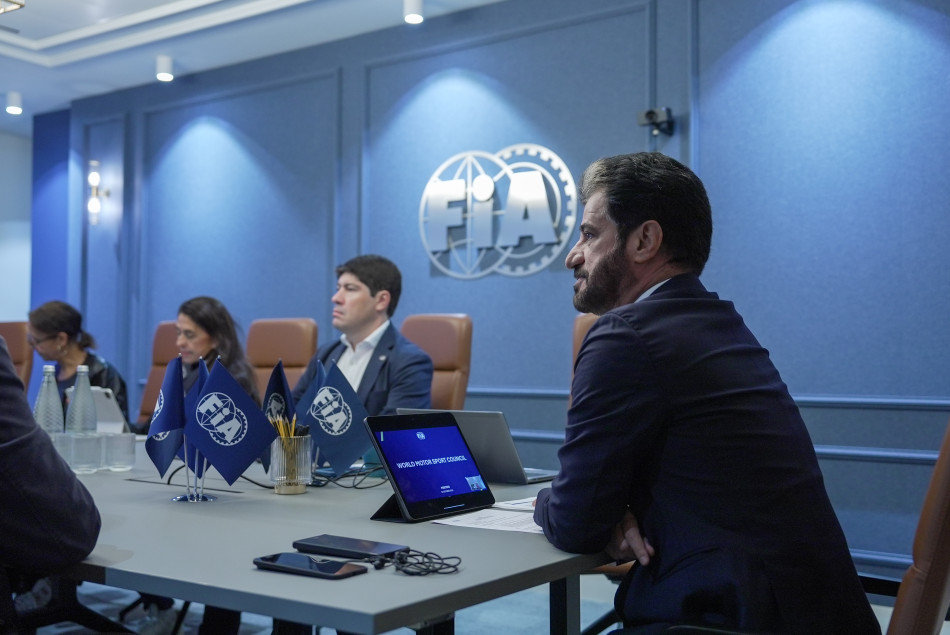
The third meeting of the FIA World Motor Sport Council has been held today, 16 October, via videoconference. Linking together the global network of National Sporting Authorities (ASNs) with the FIA’s newest office location in the heart of London, the FIA President joined the Council from the recently-completed Knightsbridge premises.
In his opening address, the FIA President Mohammed Ben Sulayem highlighted the many areas of growth and development throughout the year so far, as well as the ongoing digital transformation at the FIA.
“I am delighted to be joining you today from our new FIA office in London – a milestone that reflects our continued efforts to strengthen and globalise our Federation," he said.
“So far, this year has been one of growth as we see partnerships, and championships, go from strength to strength. We have accelerated our organisations digital transformation – empowering our members with the introduction of the cutting-edge FIA Digital Licensing Platform with an ongoing investment of over €1.6m.
“Through this, we are laying the groundwork for the future of motor sport with the first digital licenses due to be issued next year for the 2026 season by a number of our global ASNs.”
President Ben Sulayem also turned the attention of the World Council to the ongoing FIA Volunteers and Officials Month, paying tribute to the thousands of people who dedicate their time to the sport, adding:
“This month we have celebrated our volunteers and officials – the heroes who power our sport. Throughout October we’ve shone a spotlight on the vital role they play at every level, from grassroots events to FIA World Championships.
“My sincere thanks to each and every one of them for their dedication and passion.”
The following is a summary of decisions taken at today’s WMSC meeting:
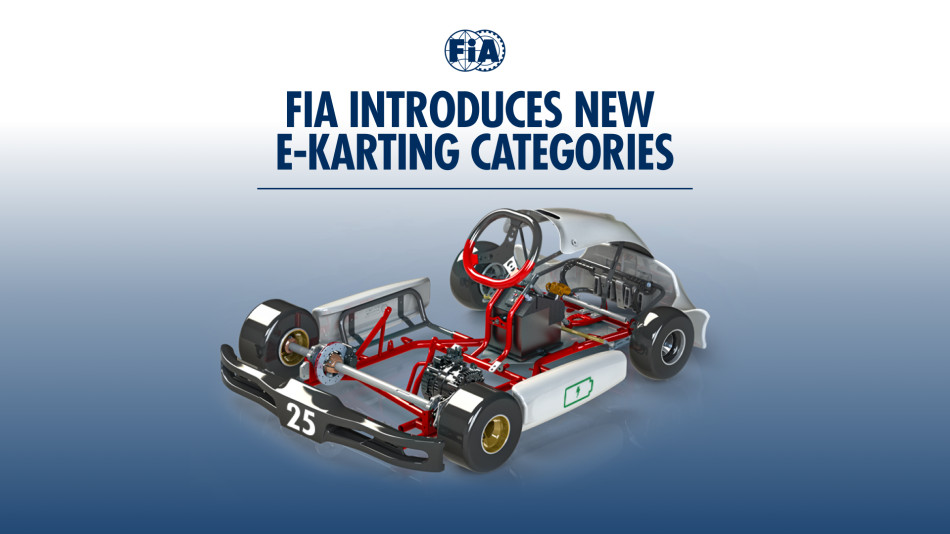
Karting is set to enter a new chapter with the addition of technical and homologation regulations for Junior and Senior e-karting. The regulations, covering e-drivetrain system providers, voltage limits, weight and powertrain integration will spark an expansion in international e-karting, opening the door to new events, competitions and championships around the globe.
The regulations, approved by World Motor Sport Council today, expand upon the existing e-karting technical regulations governing e-karting mini which was introduced in October 2023.
The new Junior and Senior e-karting classes both limit voltage to 60V and require batteries to be positioned in a central position, below the steering column, and not on the sides of the kart. This follows extensive research, testing and evaluation conducted by the FIA Technical and Safety Departments over the last year, at the request of the FIA Karting Department.
Following the approval of these regulations, electric drivetrains can now be homologated by the FIA with the maximum total power produced by the Rechargeable Energy Storage System limited to 23kW in the Junior class and 28kW in the Senior class.
E-karting offers a fresh and dynamic racing category and contributes to the growing number of FIA championships and competitions utilising sustainable energy sources.
Akbar Ebrahim, FIA Karting Commission President, said: “E-karting presents a significant opportunity to contribute to the continued growth of global karting and these regulations will unlock fresh possibilities for events and championships around the world. With the launch of new e-karting classes, the inaugural Arrive and Drive Continental Championships and the largest FIA Karting calendar to date, 2026 is shaping up to be a golden year for karting.”
-
Positive energy for all of motor sport
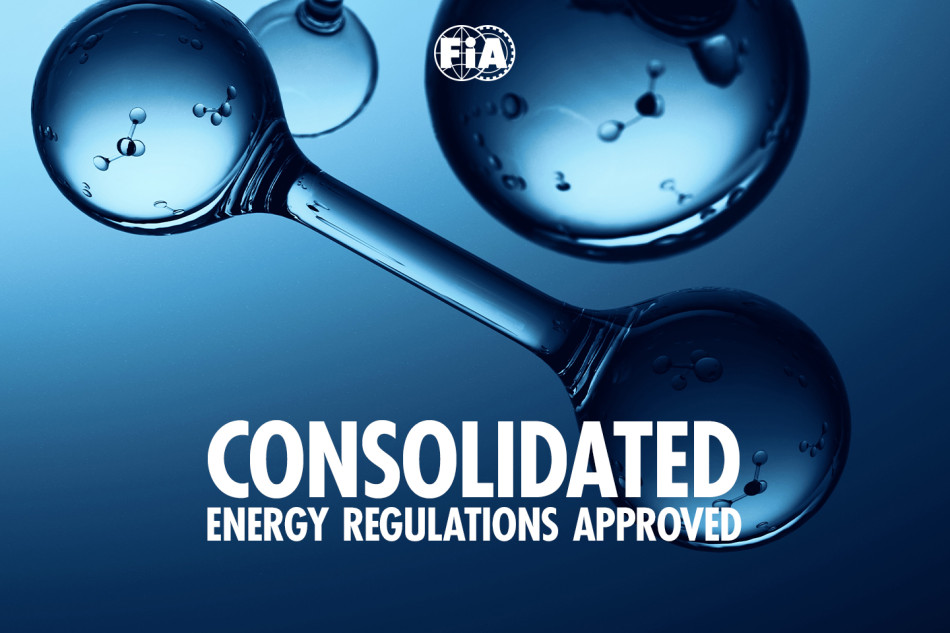
The World Council has approved the creation of a new consolidated article in Appendix J to the International Sporting Code. Article 266 defines the general regulatory framework applicable to all energy sources used in FIA competitions, namely liquid fuels, electric power, and hydrogen (both liquid and gaseous).
Its objective is to establish common principles that ensure safety and promote the transition towards sustainable mobility. It details specific provisions related to each energy type and is the first time this information has been made available as a singular resource.
As technology develops, motor sport continues to become more complex, and the challenge of regulating the sport to ensure fairness and transparency at every level grows. By consolidating regulations in this way, the FIA Technical Department aims to future-proof its processes and maximise its effectiveness, working hand-in-hand with partners and colleagues across a global network of suppliers and manufacturers.
-
Bold new era for the FIA European Historic Rally Championship

The World Council has approved a comprehensive reorganisation of the FIA European Historic Rally Championship (EHRC) for the 2026 season, marking the start of a bold new era for historic rallying in Europe.
From 2026, the EHRC will consist of three core championships, all maintained under the FIA EHRC umbrella:
- The FIA ERHC Pre-1992 Championship
- The FIA EHRC Pre-2000 Championship
- The FIA EHRC Gravel Championship
The restructure meets a rising demand for a dedicated gravel championship, reducing the logistical burden of converting cars between gravel and asphalt, allowing competitors to focus on their preferred surface within the FIA’s historic rally framework.
While the introduction of the Pre-2000 category responds to the growing number of competitors with Period K cars, by separating these more advanced 1993–2000 models from the pre-1992 Category 4 cars, enthusiasts from both eras can compete under fairer and more balanced conditions within the championship.
The 2026 Sporting Regulations governing the three new championships have also been approved by the World Motor Sport Council, with minor amendments introduced to improve consistency and accuracy across the regulations. New categories within the Pre-2000 Championship have been established to better reflect the classification of that period, while updates to FIA Appendix K have been adopted to enhance clarity and readability for both competitors and organisers.
-
Regulatory updates:
FIA Formula One World Championship
The FIA President and the President and CEO of FOM highlighted the strong partnership between the two organisations, and praised all stakeholders for the overall health of the sport.
As the process of finalising the new Concorde Governance Agreement for the FIA Formula One World Championship nears its conclusion, FIA President Mohammed Ben Sulayem commented, “As we continue our positive discussions with FOM and the teams to conclude the new agreement, together we have the chance to make history.
“Our close collaboration will enable the championship to continue to grow globally, attracting an ever-increasing numbers of fans and delivering a future that will enable the FIA to consolidate its role as the regulator. Our priorities are to continue to improve safety across all our single seater series, support the pathway for young drivers and ultimately to see our beloved sport grow.
“My thanks to Stefano Domenicali and his team, and representatives from all parties, as we build towards conclusion.”
Stefano Domenicali, President and CEO of FOM, added, “Thanks to FIA and volunteers and ASNs for all their commitment and effort. This is an incredible moment, with our two roles working with clarity towards a strong future. We have built good momentum over the past few months and made great progress to ensure sound governance for the sustainability and well-being of the sport.”
The World Council approved minor changes to the 2026 Technical Regulations relating to the survival cell, suspension, aerodynamic components and Power Unit, to the Power Unit Financial Regulations and to the Operational Regulations. These changes were part of the ongoing collaboration between the FIA, FOM and the teams and power unit manufacturers to refine the regulations.
The most significant of these changes related to the ADUO concept (Additional Development and Upgrade Opportunities), which is intended to provide greater development opportunities for PU manufacturers who find themselves significantly behind their competition in terms of performance. Performance will be measured between all Power Units continuously, and after Races 6, 12 and 18 ADUO could be allocated to address such a situation, providing:
- Additional possibilities to change the homologation of the Power Unit
- Additional cost cap relief
- Additional development hours on the PU test benches
In addition, measures were introduced to provide cost cap relief to a PU Manufacturer who could find themselves facing serious reliability issues, that could otherwise be very damaging under the cost cap.
-
ABB FIA Formula E World Championship
The ABB FIA Formula E World Championship calendar has been updated as follows:
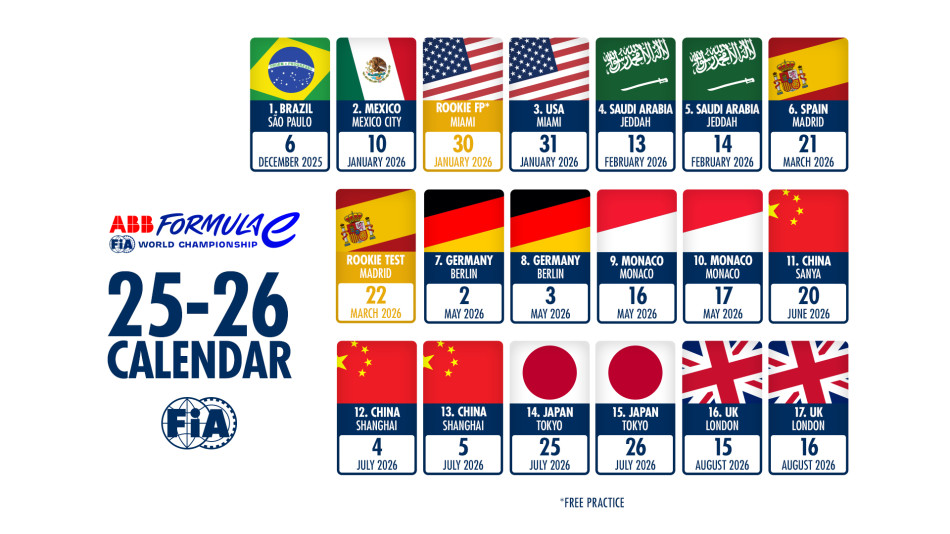
The World Council has approved slight amendments to the Sporting Regulations, with qualifying sessions reviewed to create an even more viewer-friendly qualifying format.
ATTACK MODE rules have been updated, with the option to have only one ATTACK MODE during PIT BOOST races and two ATTACK MODES for non-PIT BOOST races.
Additionally, the obligation to fulfill the complete ATTACK MODE time has been removed.
Finally, Financial Regulations have been tweaked, with the exclusion from the cost cap of maternity and paternity pay.
-
FIA Karting
The World Council has approved the FIA Karting Calendar as follows:
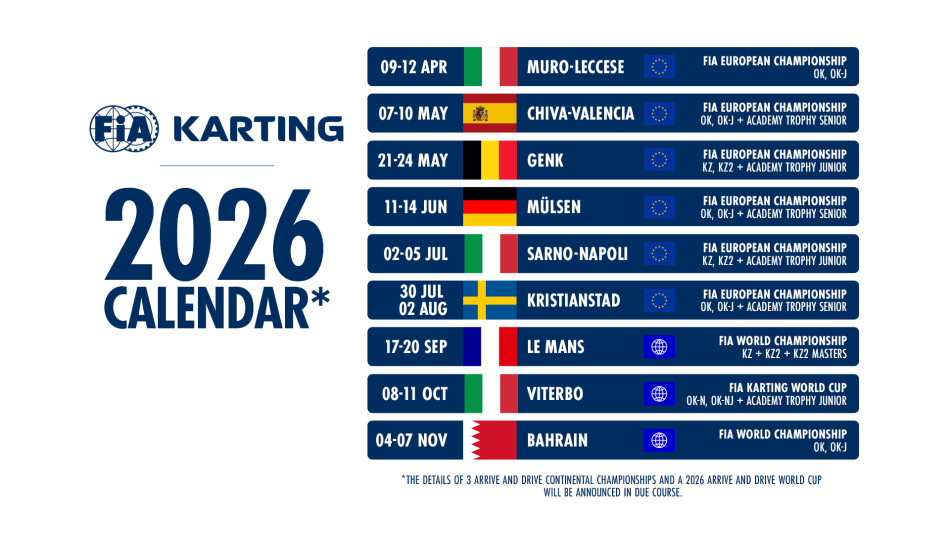
-
FIA European Rally Championship
The calendar for the 2026 season has been approved as follows:
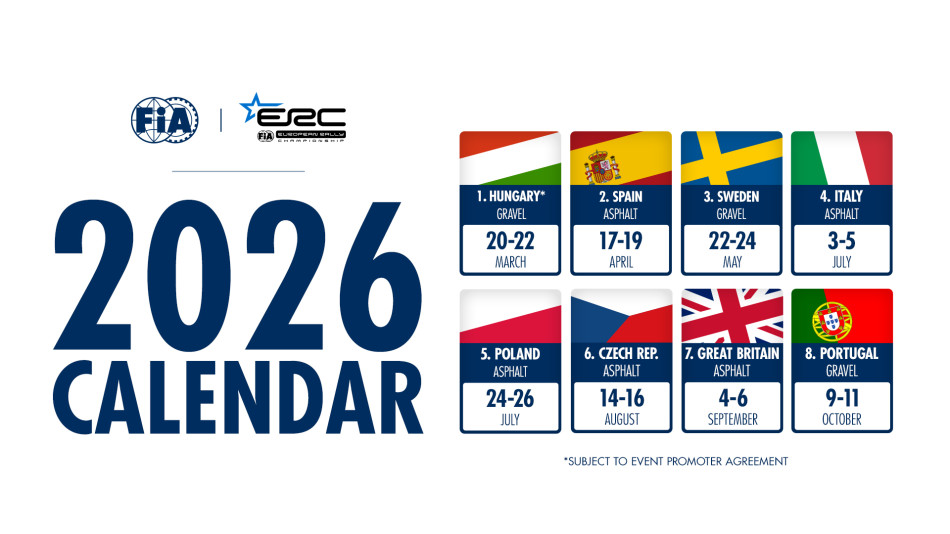
-
Goodyear FIA European Truck Racing Championship
The calendar for the 2026 season has been approved as follows:
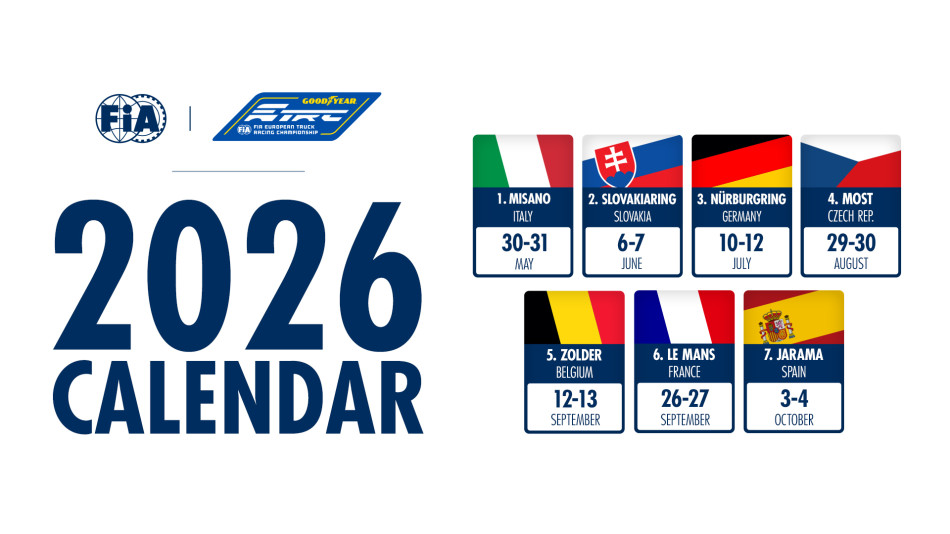
-
Bridgestone FIA ecoRally Cup
The calendar for the 2026 season has been approved as follows:
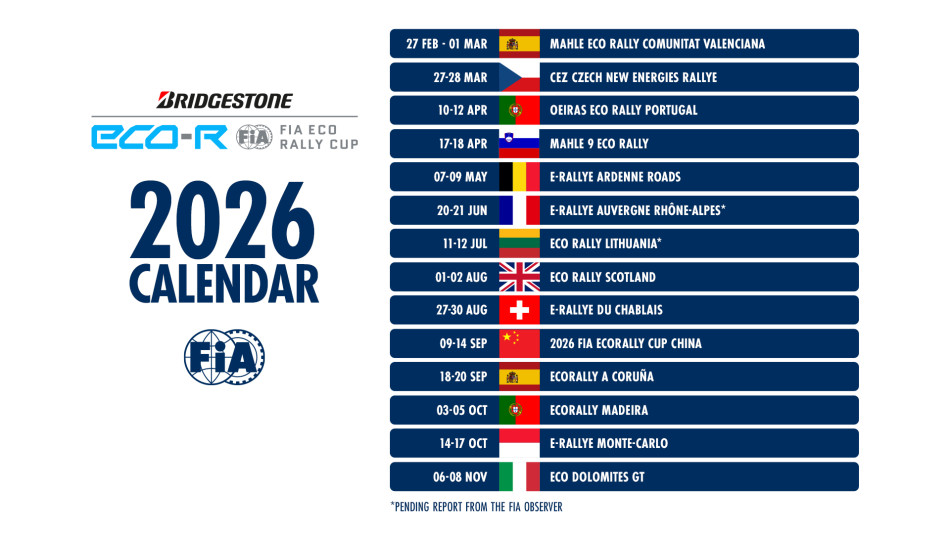
-
Super Licenses
Following the recent evolution of the FIA Single Seater Pyramid and at the recommendation of the Single Seater Committee and the Super Licence Working Group, the World Council approved an update to the categorisation of FIA-certified Formula 4 and Formula Regional Championships so that points are now allocated based on the number of events rather than the specific category. Championships that have fewer than five events will now be categorised as Trophies and have a reduced allocation of points.
-
Rally Commission
The World Council has approved the creation of an RC6 class for Rally6 Group cars – an entry level specification designed to be as cost effective as possible, particularly in terms of the running costs. These vehicles will be based on the following concept:
- Four-seater, two-wheel drive ICE cars
- Standard 1.6T or 2.0 NA engine with competition ECU
- Power-to-weight ratio of 7.5 kg/hp (e.g. 1050 kg / 140 hp)
- H-pattern gearbox, production brakes and tyres
- Non-adjustable competition shock absorbers
- Safety level equivalent to Rally5-Kit
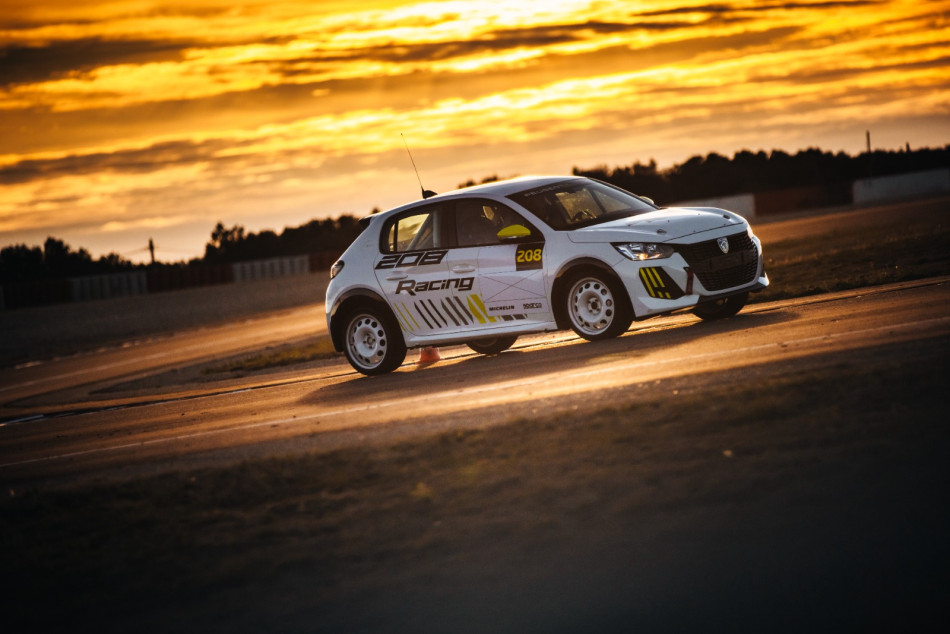
-
Cross-Country Rally Commission
As a cost-saving measure, competitors entered with Challenger or SSV vehicles must obtain their fuel either from the central fuel distribution arranged by the organiser where one exists, or from commercial filling stations specified in the Supplementary Regulations of the rally.
-
2026 FIA sporting calendars were approved as follows: CLICK HERE
-
Upcoming World Motor Sport Council Meetings
| Date | Venue |
| 10 Dec. | Tashkent, Uzbekistan – within the framework of the FIA General Assemblies |

 Facebook
Facebook Twitter
Twitter


